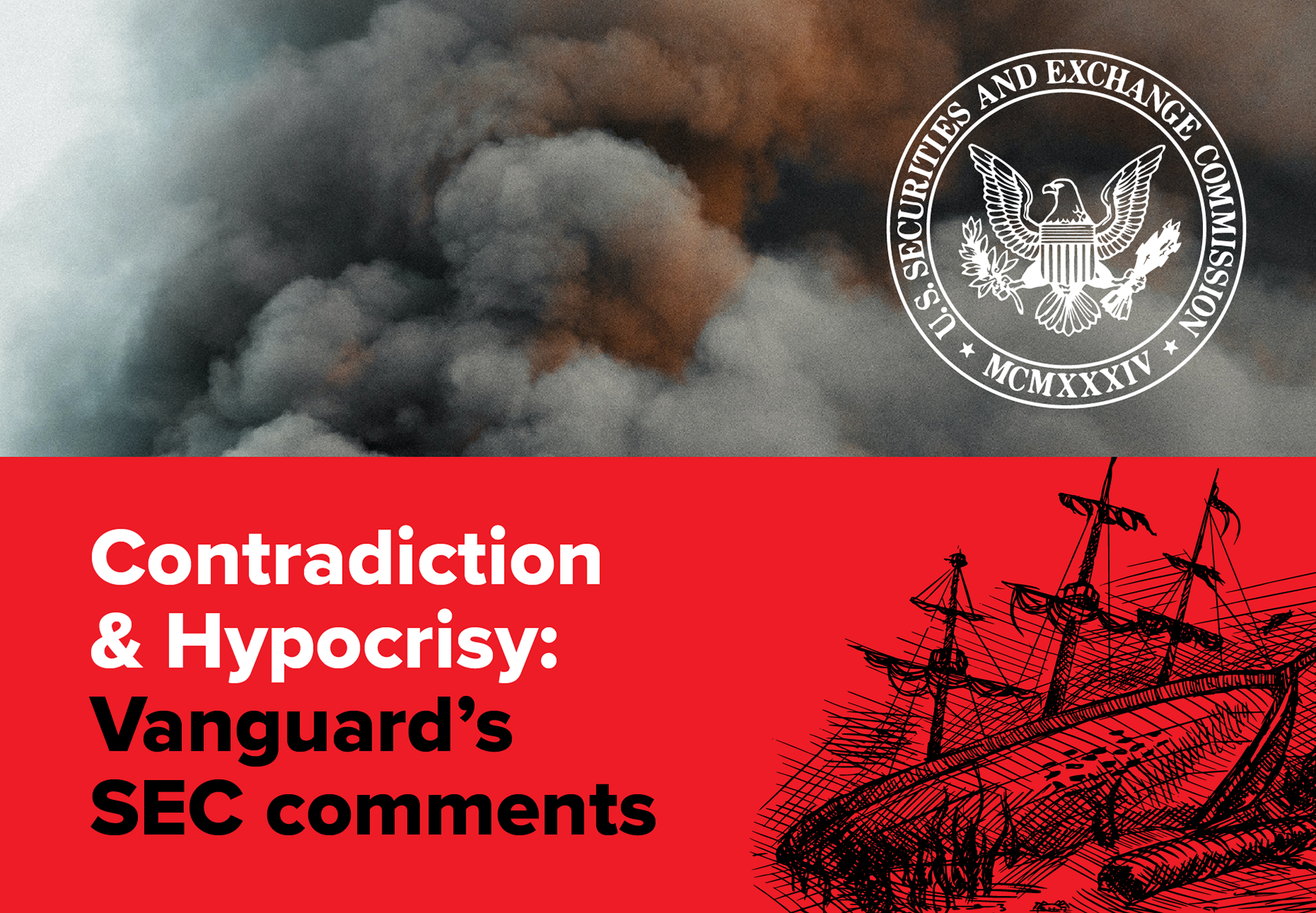Over the past few months, one of the main financial regulators in the US, the Securities and Exchange Commission (SEC), has proposed a series of rules to help investors better understand the risks climate change poses to their investments. ESG (environmental, social, and governance) investing has gained popularity in recent years, as investors feel compelled to protect their investments from climate-related risk and other systemic financial shocks.
This year, the SEC has proposed amendments to three rules that are meant to both make it harder for companies to greenwash their contributions to climate change, and make it easier for investors to protect their investments against climate risk. If the SEC’s proposed rules come out strong, the federal regulator can make great strides in ensuring consistent, public reporting about the ways in which companies are both impacting and preparing for the climate crisis.
Over the years, Vanguard has weighed in on how it would like to see the SEC regulate climate risk, and its public statements are full of contradictions and hypocrisy. Vanguard’s latest comments to the SEC miss the mark, clearly underscoring its priority to not only hide its own climate inaction, but also to evade its culpability in fueling the climate crisis.
Vanguard says it wants disclosures on climate risk, but the company is all talk.
In 2021, Vanguard wrote to the SEC, saying they supported a “well-designed disclosure framework” and “[c]lear, concise, meaningful, and comparable climate risk disclosures.” But in 2022, when the SEC proposed rules to require publicly-traded companies to disclose their total greenhouse gas emissions (Scope 1, 2, and 3), Vanguard did a 180. In its public comment to the SEC, Vanguard said that the proposed rules “may be less useful for investors and overly burdensome for companies.”
Despite what Vanguard wants you to think, these disclosures are crucial to helping all investors make smart investing decisions. Federal regulation must require mandatory, across-the-board disclosures of all corporate emissions that are reliable, consistent, and comparable. Otherwise, Vanguard’s clients (as well as those of other asset managers) have no way of knowing the extent of a company’s impact on the climate crisis, its exposure to transition risk, or what steps are being taken to reduce its carbon footprint.
Furthermore, Vanguard’s recommendations would have these critical disclosures only apply to a fraction of the market: companies with “acute climate risk” and those with existing climate goals. There are approximately 7,000 publicly listed US companies, yet only about 400 of them (a measly 5.7%) have set climate goals. And, even then, many such goals aren’t strong enough to achieve 1.5C alignment.
Without disclosure of corporate emissions across the board, companies can more easily hide relevant climate information from investors, who could then unknowingly continue to fuel the climate crisis.
Vanguard is trying to shield the financial industry from climate accountability
Vanguard is encouraging the SEC to limit the scope of its disclosure requirements, by advocating for the disclosure of Scope 3 emissions for only a subset of companies with “more acute climate risks.” Scope 3 emissions, or emissions embedded either in a company’s supply chain (like the cost of refining materials for computers) or through the use of its products (like the emissions from driving a gas-powered car) constitute the bulk of emissions for most companies.
Vanguard’s recommendation creates a huge loophole for companies that are not traditionally considered to incur acute climate risks (like utilities, banks, insurance companies, or asset managers), but do have huge greenhouse gas footprints. For example, the Scope 3 emissions of global financial institutions is, on average, more than 700 times larger than their Scope 1 and 2 emissions.
Looking for analysis on BlackRock’s SEC comments? Check out our read-out on the BlackRock’s Big Problem campaign site.
